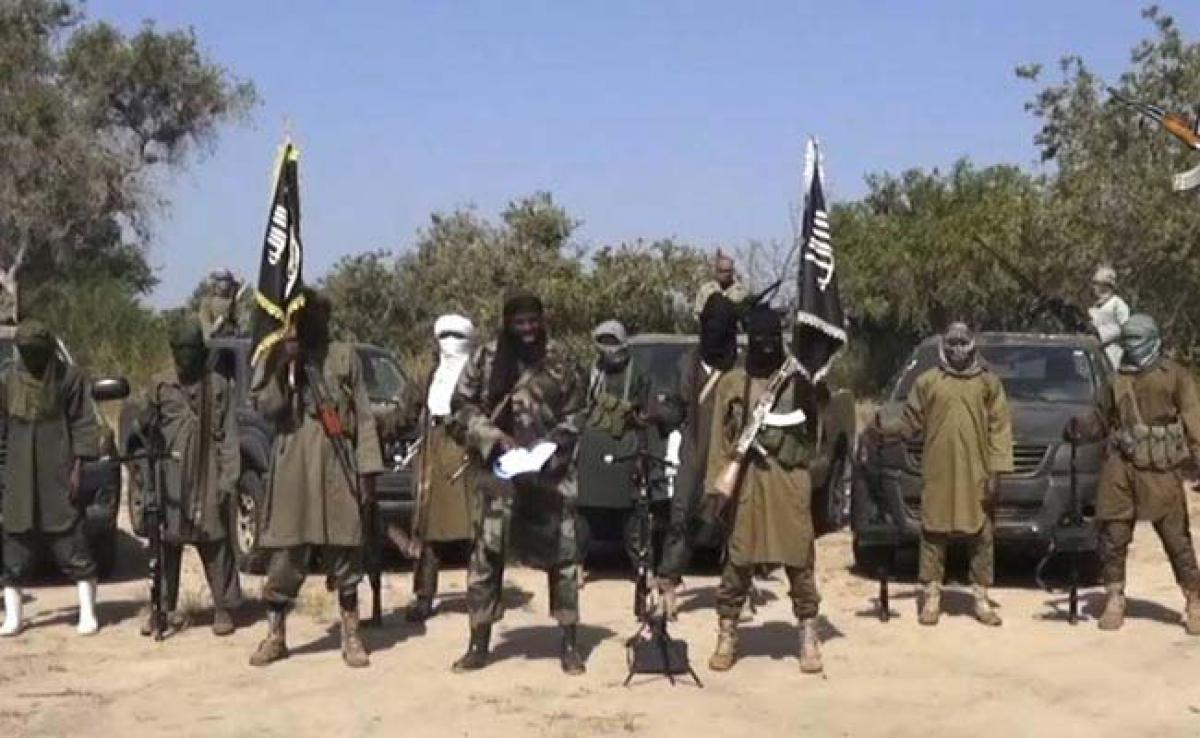Live
- Exhilarating ‘Benchmark’ of Venkat Changavalli
- Development activities worth `30 cr launched in Puthalapattu constituency
- Allegations against KTR baseless: BRS leader
- Megastar Chiranjeevi to Visit Allu Arjun’s Residence at 12 PM Today
- Nilima Rane: Trailblazer in Nursing
- Casual yet stylish office outfits for all-day comfort
- TTD to suspend all special darshans from January 10 to 19 amid Vaikuntha dwara darshans
- Naidu pats TDP leaders, cadres for enrolling 73L members
- Rupali Ganguly says for 20 years she never got an award
- Advanced anti-drone systems deployed for devotees’ safety at Mahakumbh
Just In

x
Highlights
A Boko Haram suicide bombing in a crowded market in Chad\'s capital killed 15 people on Saturday, just days after the militant group claimed a previous bombing in the city that left 38 people dead.
A Boko Haram suicide bombing in a crowded market in Chad's capital killed 15 people on Saturday, just days after the militant group claimed a previous bombing in the city that left 38 people dead.
.jpg)
The attack in N'Djamena, by a man disguised as a woman in a full-face veil, came after a botched bombing in the capital of Nigeria's Borno state, Maiduguri, which killed two pedestrians.
Militant fighters on Friday night also raided the village of Ngamdu, some 100 kilometres (60 miles) from Maiduguri, killing 11, residents and a member of the civilian militia said.
The attacks underlined the threat still posed by the Islamists in the region, despite the authorities' claims of recent military successes and with a new regional force set to deploy at the end of the month.
Police director-general Taher Erda said the N'Djamena bomber detonated his explosives belt when he was stopped for security checks at the entrance to the market.
Muslim-majority Chad banned the full-face veil, ramped up security measures and bombed militant positions in Nigeria last month after the first ever Boko Haram attack in its capital.
The provisional toll on Saturday was 15 dead and 80 injured, four of them seriously, said police spokesman Paul Manga. Nine of the victims were female traders and one was a police officer, he added.
An AFP correspondent there described a gruesome scene of carnage and pools of blood.
The area, in the heart of the capital, was cordoned off by security forces after the attack at about 8:45 am, and a police source said there was "no doubt it was Boko Haram".
'Despicable'
The attack in Maiduguri saw two bombers in a motorised rickshaw try to get into a busy bus station on Saturday morning. They were deterred by heavy security, however, and the attack happened nearby.
Boko Haram claimed responsibility for the attacks in Chad and Maiduguri via Twitter, according to the US-based SITE Intelligence Group, signing off as "Islamic State, West Africa province" -- the militant's self-styled moniker since pledging allegiance to the Islamic State group in March.
Prime Minister Kalzeube Pahimi Deubet called a crisis meeting to discuss the attack. Laurent Fabius, foreign minister of Chad's former colonial masters France, called the bombing "despicable".
On June 15, 38 people were killed in a twin suicide attack at a police academy and the main police station in N'Djamena, where a French-led operation against sub-Saharan extremists is based.
Experts said the latest bombing in Chad, following previous strikes in Niger and repeated targeting of northern Cameroon, showed the need for a joined-up solution involving Nigeria and its neighbours.
Nigeria's President Muhammadu Buhari, who came to power on May 29, has made defeating Boko Haram a top priority.
But Ryan Cummings, chief Africa analyst with the Red24 consulting group, told AFP: "The fight against Boko Haram is unlikely to be concluded with any rapidity.
"The fact remains that while Boko Haram continues to be defined as a Nigerian problem, evidence suggests that it has become a quandary of regional proportions requiring a regional solution.
"In the absence of Nigeria's neighbours recognising the extent of Boko Haram's regional contagion and subsequently responding to it decisively, the most exhaustive efforts by the Nigerian government alone won't solve the problem."
Attacks increasing
Boko Haram's deadly insurgency has killed at least 15,000 people since 2009 and left more than 1.5 million homeless.
A four-nation coalition of Nigeria, Niger, Chad and Cameroon has reportedly pushed out the militants from captured towns and villages in an operation that began in February.
But since Mr Buhari came to power, attacks have increased and with the latest violence in Maiduguri and Ngamdu, nearly 580 people have been killed in Nigeria alone, according to AFP reporting.
Also on Friday, eight people were killed in Gamboru when Boko Haram fighters opened fire on residents returning to the abandoned town from Fotokol, just across the border in northern Cameroon.
Mr Buhari, who is coming under pressure to act soon, is pinning his hopes on the deployment of a strengthened regional force at the end of this month.
Experts say the 8,700-strong force, to be commanded by a senior Nigerian officer from headquarters in N'Djamena, will only be effective if coordination between the partners is improved.
Foreign forces will also need free rein to pursue Boko Haram in Nigerian territory after Chadian and Niger troops were ordered to retreat by the previous administration in Abuja.
More On

Next Story
More Stories
ADVERTISEMENT
© 2024 Hyderabad Media House Limited/The Hans India. All rights reserved. Powered by hocalwire.com







